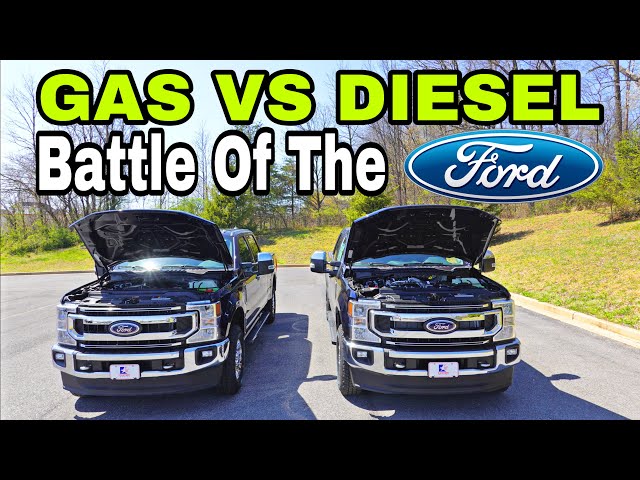Diesel vs. Gas Trucks: Pros and Cons
Reasons to Choose a Diesel Truck
Torque and Towing: More often than not, diesel engines generate more torque than gas engines, which translates to greater towing capacities. So if you’re in need of a work truck or transport vehicle around Washington, a diesel truck can get the job done.
Fuel Economy: In addition to superior torque, diesel engines also boast better fuel economy returns. In fact, the EPA estimates are often significantly higher than those of gas engines.
Longevity: Ask drivers of diesel trucks about how long diesel engines last, and they’ll likely inform you that they can drive their trucks for hundreds of thousands of miles before expiration. This is largely due to simple engine construction and stronger engine blocks.
Reasons to Choose a Gas Truck
Acceleration and Horsepower: Diesel engines have the torque advantage, but gas engines provide the horsepower and acceleration you need to get up to speed on Colorado highways.
More Fueling Stations: When it’s time to refuel, it’ll be much easier to find locations around Bloomington to fill up with a gas-powered truck than it would be with a diesel truck.
Lower Maintenance Costs: Since gas engines are more common, it’s more likely that your local service center has the parts needed for maintenance and repairs. This results in lower maintenance costs. Diesel engines, on the other hand, require heavy-duty and often hard-to-find parts, which drives up service costs.
Diesel vs. Gas Truck: Ford F-150
Want to see how a diesel vs. gas truck compares in reality? Consider the Ford F-150 as an example.
3.0L Power Stroke® Turbo Diesel V6
250 hp
440 lb-ft of torque
EPA-estimated 30 mpg highway
2.7L EcoBoost® V6
325 hp
400 lb-ft of torque
EPA-estimated 26 mpg highway


